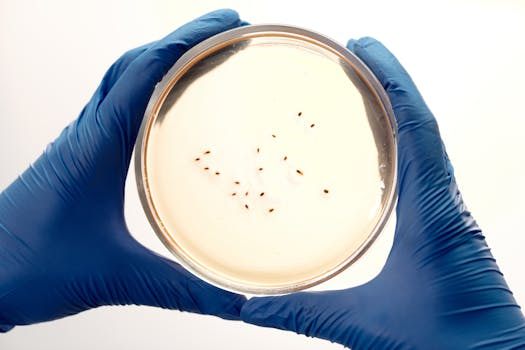Precision Fermentation: Creating Novel Ingredients with Microbes
Precision fermentation is revolutionizing the food and beverage industry by creating novel ingredients with the help of microbes. With the rising demand for sustainable and healthy options, precision fermentation offers a promising solution. This cutting-edge technology combines the precision of genetic engineering with the power of fermentation to produce high-quality, customizable ingredients. Let’s delve into the world of precision fermentation and how it is creating novel ingredients with microbes.
The Science behind Precision Fermentation
Before we dive into the world of precision fermentation, let’s understand the basic process behind it. Fermentation is a natural process where microorganisms convert sugars into various substances, such as alcohol, acids, and gases. In precision fermentation, specific microorganisms are selected and engineered to produce desired compounds efficiently and accurately.
The precision aspect comes from the use of genetic engineering, where scientists introduce or modify specific genes in the microorganisms to produce a particular compound. This process eliminates the need for traditional fermentation methods, which involve the use of raw materials, such as grains or fruits, and can be time-consuming and unpredictable. In precision fermentation, the entire process is controlled and streamlined, resulting in a consistent and high-quality product.
Creating Novel Ingredients
One of the most significant advances of precision fermentation is its ability to create novel ingredients that were previously difficult or impossible to produce. The versatility of this technology allows for the production of a wide range of compounds, from proteins and vitamins to flavorings and fragrances. Let’s take a closer look at some of these novel ingredients.
Proteins
With the rise of plant-based diets, there is a growing demand for plant-based proteins as an alternative to animal-based proteins. Precision fermentation offers a solution by producing proteins identical to those found in animal products, such as milk, meat, and eggs. The process involves engineering microorganisms to produce specific proteins, which are then harvested and purified. This not only provides a sustainable option but also eliminates health risks associated with traditional animal-based protein sources.
Vitamins
Another significant development in precision fermentation is the production of vitamins. With the increasing demand for functional foods and supplements, precision fermentation offers a sustainable and efficient way of producing vitamins. Microorganisms are engineered to produce vitamins, such as B12 and D, which are then extracted and incorporated into various products. This eliminates the need for synthetic vitamins, making it a healthier and more natural option.
Flavorings and Fragrances
The food and beverage industry is no stranger to flavorings and fragrances derived from natural sources, such as fruits, herbs, and spices. However, the process of extracting these compounds can be expensive and unsustainable. Precision fermentation offers a solution by producing these compounds in a controlled environment without the need for agricultural resources. This not only reduces costs but also ensures a consistent and high-quality product.
The Advantages of Precision Fermentation
Precision fermentation offers numerous benefits that make it a promising technology for the future of food and beverage production. Let’s take a look at some of its advantages.
Sustainability
One of the main advantages of precision fermentation is its sustainability. By eliminating the need for traditional agriculture, precision fermentation reduces the land, water, and energy required to produce ingredients. Additionally, it reduces carbon emissions and other environmental impacts associated with food production. This makes it a more sustainable option for feeding a growing population.
Customization
Precision fermentation allows for the customization of ingredients, making it a versatile technology. Scientists can engineer microorganisms to produce specific compounds, resulting in a wide range of products that can cater to different dietary and nutritional needs. This allows for a more personalized and targeted approach to food production.
Efficiency
Traditional fermentation methods can be unpredictable and time-consuming. With precision fermentation, the entire process is controlled and streamlined, resulting in a more efficient production process. This ensures a consistent and high-quality product, reducing the chances of contamination or spoilage.
Conclusion
Precision fermentation is a game-changer in the food and beverage industry, with its ability to create novel and sustainable ingredients. With its advantages of sustainability, customization, and efficiency, it offers a promising solution to the challenges faced by traditional agriculture in meeting the increasing demand for food and beverage products. As technology continues to advance, we can expect to see even more groundbreaking developments in precision fermentation, shaping the future of food production.










